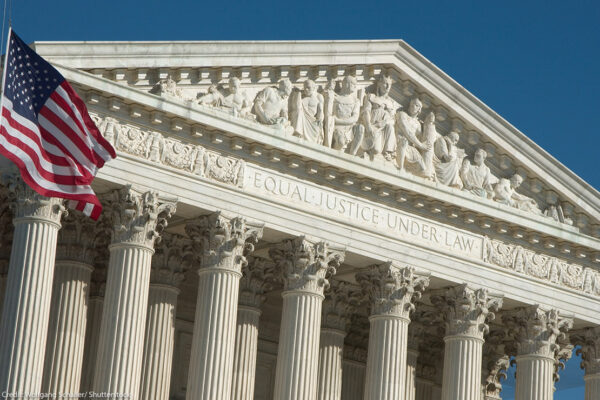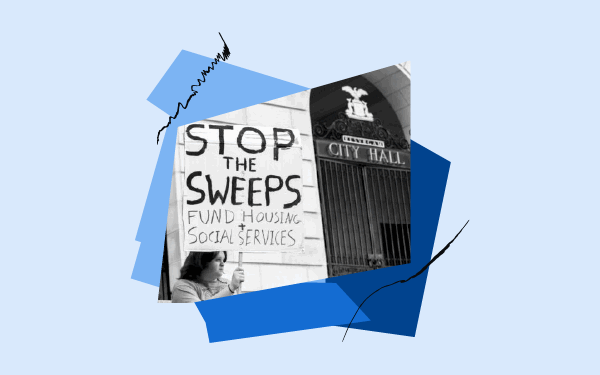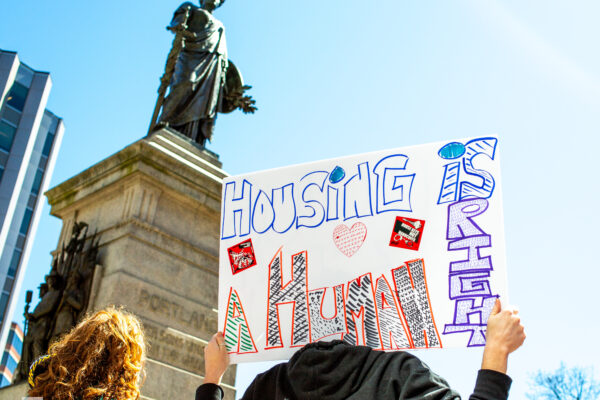The court has opened the door for cities to punish people for trying to survive, but Maine cities must address root causes instead.
PORTLAND – The U.S. Supreme Court today ruled that cities can punish unhoused people for sleeping in public, even if shelters are full and they have nowhere else to go. The court’s decision in City of Grants Pass v. Johnson eviscerates longstanding precedent that criminalizing a person based on their status constitutes cruel and unusual punishment.
“Today’s ruling opens the door for cities to punish people simply for trying to survive while poor,” said ACLU of Maine Executive Director Molly Curren Rowles. “But just because the court says they can, does not mean Maine towns and cities should. Our state and local leaders still have a choice. They can either continue attempting – and failing – to punish people out of poverty, or they can address the root causes of homelessness by increasing access to health care, education, and jobs.”
Today’s decision stems from a challenge to ordinances in Grants Pass, Oregon, barring people from sleeping outside in public using a blanket, pillow, or even a cardboard sheet to lie on. The ordinance punishes unhoused people for sleeping outside – even when shelters are full and they have nowhere else to go. This cruel policy ignores the root causes of homelessness and pushes many people even further into poverty by saddling them with fines and jail time. Like communities throughout Maine, Grants Pass bars unhoused people from sleeping outside even when they lack adequate, accessible shelter space.
"Allowing cities to punish people for the basic human act of sleeping in a public space when they have no other place to go is a stark example of decades’ long efforts to criminally punish people for being poor,” added Curren Rowles. “Despite this ruling, unhoused people still have rights under state and federal law, including due process, freedom from discrimination, and protection from unreasonable search and seizure. We cannot arrest our way out of homelessness, and we will continue fighting policies that treat unhoused people as criminals.”
The American Civil Liberties Union submitted a friend-of-the-court brief arguing that punishing unhoused people for sleeping outside when they lack access to shelter violates the Eighth Amendment’s protection from cruel and unusual punishment. As the brief highlights, the original meaning of the Eighth Amendment and its application in over 100 years of Supreme Court cases make clear that the government cannot punish people in ways that are disproportionate to the crime.
The brief goes on to argue that Robinson v. California, which ruled that criminalizing a person’s status is cruel and unusual punishment and was relied upon by the lower courts in Johnson v. Grants Pass, is consistent with this proportionality principle. Applying the same proportionality principle, the brief stated, punishing unhoused people for sleeping in public when they have no other choice violates the Eighth Amendment.
The Court’s decision reverses an opinion from the Ninth Circuit for the United States Court of Appeals holding that punishing unhoused people for sleeping in public when they have no access to shelter violates the Eighth Amendment protection against cruel and unusual punishment.
Read the court's opinion here or in the PDF at the bottom of this page.
Documents
Related Content

The Supreme Court Will Soon Determine Whether Cities Can Punish People for Sleeping in Public When They Have Nowhere Else to Go

Bangor Median Ban Threatens First Amendment Rights
Stay Informed
Sign up to be the first to hear about how to take action.
By completing this form, I agree to receive occasional emails per the terms of the ACLU’s privacy statement.
By completing this form, I agree to receive occasional emails per the terms of the ACLU’s privacy statement.



